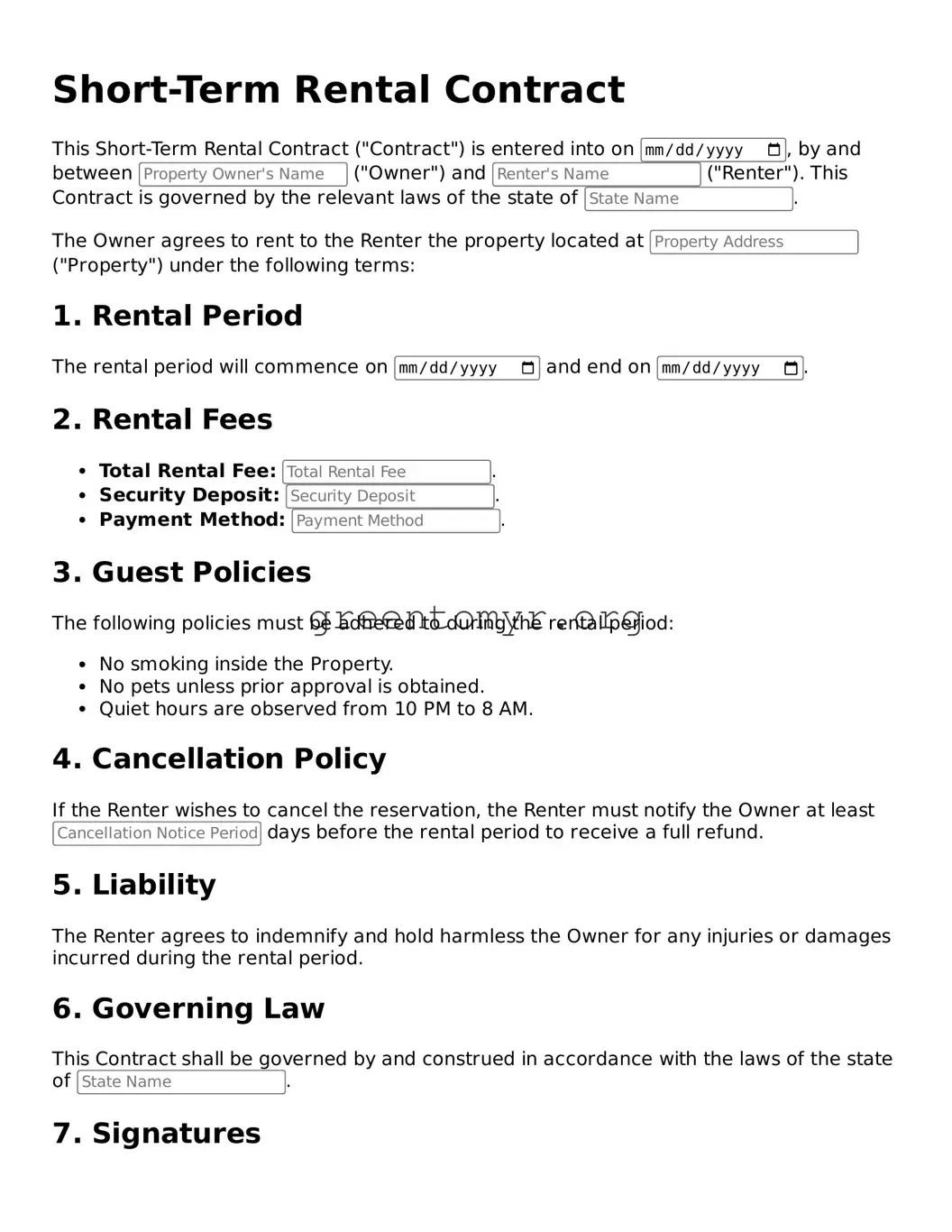Valid Short-Term Rental Contract Form
A Short-Term Rental Contract is a legal document that outlines the terms and conditions between a property owner and a renter for a temporary stay. This contract is key to ensuring that both parties understand their rights and responsibilities during the rental period. If you're ready to secure your rental agreement, fill out the form by clicking the button below.
